
Key Takeaways
- Bicycle-inspired poetry spans over a century, reflecting a deeply-rooted cultural love.
- These works offer diverse perspectives on cycling, from joyous adventures to reflective journeys.
- The poems underscore the universal nature of biking and its inspiring influence on creativity.
Ever pedaled down a path and felt inspired?
Poetry might not be the first thing that pops to your mind when you're cycling, but for some poets, the rhythmic dance of the bike's wheel has spun words into being just as effectively as it traverses the miles.
Bicycles have not only changed the way we move, but they have also pedaled their way into the arts, inspiring poets across generations.
Literature is rich with bicycle-inspired poems, each carrying its unique cadence and whiff of freedom that cycling brings.
From Paul Pastnor's celebration of the bicycle's joy to Nikki Giovanni's playful spins on two wheels, these poems are tributes to the humble bicycle and its surprising role as a muse to many writers.
Rest assured, by the end of this journey, you’ll not just feel the wind in your hair and the pulse in the pedals, but you'll also gain insights into the profound ways these poems have linked the human spirit with the simple, yet profound act of biking.
It's the connection between the spoke and the soul, the tangible and intangible, all rolling into the poetic expression.
"The Wheelman's Joy" by Paul Pastnor (1883)

Did you ever wonder what it felt like to ride a bicycle back in the 1800s?
Imagine the rustle of leaves under your wheels and a fresh breeze on your face.
This is the scene Paul Pastnor paints in his 1883 poem, "The Wheelman's Joy." It's like a time machine on paper, taking us back to when cycling was a shiny, new adventure.
Picture this: Paul Pastnor, a writer from the late 19th century, who decides to encapsulate the thrill of riding a bike in a set of rhythmic lines.
In his poem, Pastnor weaves together the feelings of freedom and delight—feelings that any cyclist can relate to, right?
- Date: April 29, 2020
- Discovered in: A joyous mention in a more recent document about cycling
If you're one who gets a kick out of exploring historical nuggets, here are a couple of morsels for you:
- The shadow of a silent steed (that's the bicycle, not a horse!)
- The image of it fleeting over hill and vale
It's not just a celebration of two-wheeled transport; it's an ode to the joy of movement.
Think about it: bikes back then didn't come with the fancy gears and carbon frames we have now.
Nonetheless, cyclists like the ones in Pastnor's poem were already feeling that incredible rush of zipping down a path, the same one you know and love today.
Isn't it fascinating how some emotions are timeless?
Whether it's 1883 or 2024, the joy of cycling is one of those enduring passions.
So next time you mount your modern stead, maybe give a nod to our friend Paul Pastnor and the cyclists of yesteryear who paved the way for our pedal-powered happiness.
"Bicycler's Song" (1882)

Ever stumbled upon a tune that makes you want to hop on your bike and just go?
Well, "Bicycler's Song" from 1882 is just that kind of poem.
Found in the pages of The Wheelman magazine, this piece isn't just about the rhythm of the pedals, but the beat of hearts coming together.
Who said poetry was only about brooding and moonlit skies?
So, what's this old-timey song got for you?
Here are the essentials:
- Date: October 1882 - March 1883 (An era when biking was picking up speed!)
- Published in: The Wheelman magazine (A must-read for cycling enthusiasts back then)
- Themes: Adventure, camaraderie, the thrill of cycling
Imagine leafing through the crisp pages of a 19th-century magazine and finding verses that speak to your twenty-first-century cycling soul.
Sounds cool, right?
This poem is a throwback to when bikes were a shiny new symbol of freedom.
Yes, your high-tech gear is awesome, but the feeling of the wind in your hair?
Timeless!
Have you ever felt that sense of belonging when riding with friends?
C.
J.
Hazlett gets it.
Your friends at the All-Day Club-Runs would have too, back in the day.
While we don't have a full verse to share, it's clear bicycle poems were spinning wheels and minds alike.
Brush up on your cycling history – who were the poets painting the picture of pedal-powered dreams?
Thomas Bailey Aldrich dabbled in it, and it seems The Wheelman had its finger on the pulse of cycling culture.
Could "Bicycler's Song" be your new cycling mantra?
Give it a whirl and see if it resonates with every push of your pedals!
"Mulga Bill's Bicycle" by Banjo Paterson (1896)

Ever imagined riding a bike and it turns into an adventure filled with chuckles?
Welcome to the world of "Mulga Bill's Bicycle", a wildly amusing poem by Banjo Paterson penned in 1896.
Have you met Mulga Bill?
He's the cheeky character who fancies himself as something of a cycling expert.
In bold strokes, Paterson paints the scene of Australia's cycling heyday, capturing the spirit and enthusiasm of bike riders back then.
But oh boy, did Mulga Bill bite off more than he could chew!
Here's a guy who jumped on the two-wheeler bandwagon only to find himself tumbling down in the most slapstick of ways.
- Title: "Mulga Bill's Bicycle"
- Author: Banjo Paterson
- Published: 1896
- Theme: Comical misadventures
- Setting: Australian countryside
Think you're ready to handle a bike?
Mulga Bill sure did, but his overconfidence soon flipped into a comical calamity.
Paterson's droll depiction of Bill's blundering ride resonates with anyone who's ever tried something new with... let's say, unexpected outcomes.
Picture the scene: Bill, caters to no advice, tackles terrain he's ill-prepared for, and ends up taking a plunge.
Can you relate?
It's the blundering attempts we've all made at some point, only Mulga Bill does it with a particularly entertaining flair that has you laughing out loud—and Paterson knew just how to tell it.
In simple terms, this piece isn't just a hoot; it's a piece of cycling history immortalized in rhyme.
It's no wonder it stands as a timeless slice of Aussie literature, right?
So next time you hop on your bike, spare a thought for Mulga Bill, and maybe take a moment to ensure you don't follow in his wobbly footsteps!
"Learning the Bicycle" by Wyatt Prunty

Ever tried teaching a kid to ride a bike?
It's a mix of running, cheering, and the occasional heart-stopping moment.
Wyatt Prunty's poem "Learning the Bicycle" is for every parent, guardian, or friend who has held the seat of a bicycle, imparting balance to wobbly beginnings.
For those of you who've been through it, doesn't it feel like a metaphor for life itself?
Who is Wyatt Prunty?
Well, he earned his Ph.D. and is a poet with a knack for capturing everyday moments and transforming them into profound insights.
His poem dedicated to Heather glides you through the journey of a child learning to ride, a scenario many of us can relate to.
Let's focus on some key highlights:
- Connection to Life's Struggles: The poem reflects the trials every person faces. Just like balancing on a bike, life requires us to find our center amid chaos.
- Themes: Perseverance is at the heart—those repeated attempts to stay upright on two wheels.
In "Learning the Bicycle", Prunty takes a simple life skill and spins it (pun intended) into a deeper reflection on personal growth and mastery.
The poem resonates because it's a shared human experience, whether you're the one running beside the bike or the one pedaling fiercely.
Have you ever experienced that magical moment when balance kicks in, both in biking and in life, where everything just seems to click?
Ponder that as you explore Prunty's lines, and maybe, just maybe, you'll find a new appreciation for the ride—potholes, detours, and all.
"Bicycles" by Nikki Giovanni

Ever found yourself pedaling through the ups and downs of love?
Nikki Giovanni's poem Bicycles might just resonate with you.
Imagine weaving through the complexities of relationships much like riding a bike—requiring balance, trust, and the willingness to support each other when the path gets bumpy.
Born in Knoxville, Tennessee, but raised in Cincinnati, Ohio, Nikki Giovanni has crafted words that have influenced and moved generations.
She's not only a celebrated poet but also a distinguished professor at Virginia Tech since 1987.
Her work, including Bicycles, forms a mosaic of bold, romantic, and sometimes controversial themes.
In Bicycles, Giovanni collects poems that become a companion to her earlier Love Poems, famously known for their unexpected expressions of love.
The bicycle metaphor she employs isn't just clever; it's a vital part of the essence of her work.
Ready to catch her exuberance for life?
Here's what you're getting into:
- Themes: Love, relationships, balance, and trust.
- Background: A companion to Giovanni's 1997 Love Poems.
- Tone: Bold, romantic, and lively.
Each poem is a pedal stroke in a journey through love's varied landscapes.
With Giovanni's guidance, you're invited to glide alongside her, experiencing the "flow of the earth", as she puts it.
Just like bicycles need two wheels in harmony to keep moving, love needs two people in sync.
So, have you ever considered the similarities between a bicycle ride and the way we navigate relationships?
If not, Giovanni's Bicycles might just open your eyes to a new perspective.
Who knew cycling could teach us so much about the heart?
"To a Friend Whose Work Has Come to Triumph" by Anne Sexton

Have you ever felt the rush of wind in your hair as you pedal down a hill, the sense of triumph as you breeze past the challenges?
Well, Anne Sexton captures a similar spirit of victory and camaraderie in her poem "To a Friend Whose Work Has Come to Triumph." Although it isn't directly about cycling, the imagery is close to that ecstatic feeling you get when you conquer a steep climb and set off down the other side.
This poem is a nod to the myth of Icarus—who notably attempted to escape Crete by flying too close to the sun with wings made of feathers and wax.
But here's the spin: Sexton's words serve as an applause to her friend's successful endeavors, as if they've just completed their own Herculean task without getting singed.
In essence, Sexton is shouting from the rooftops—or perhaps, in our fitting metaphor, from the top of the highest hill before the descent—congratulating her friend for their hard work paying off.
The poem isn't just a celebration, but it's also a gentle reminder to enjoy the ride, to bask in the glow of your accomplishments.
Here’s what you might picture when reading the poem:
- Exhilaration of success: Like freewheeling down a hill with no hands.
- Symbolism of flight: Stretching your wings; cool reference to Icarus, right?
- Communal joy: That high-five moment when your buddy nails it.
It’s a short poem that packs a punch, much like the burst of energy you get when those pedals start flying.
So go ahead and take a moment to celebrate the triumphs—yours and others'.
Life, like cycling, is full of uphill battles, but Sexton reminds us to revel in those sweet, downhill victories.
"The Bicycle" by Gillian Clarke

Ever stumbled upon a scrapbook from your youth and found yourself swept up in a whirlwind of nostalgia?
That's the essence of what Gillian Clarke taps into with her poem "The Bicycle."
Do you remember your first bike?
The sense of absolute freedom as you pedaled away without a care in the world—Clarke's words evoke those very emotions.
In her stanzas, childhood memories intertwine with the simple yet profound experiences of riding a bike.
It's not just about the motion of the wheels; it's about the moments that felt like you could outpace the wind.
Here's the thing about this poem—you're not only revisiting a childhood memory, but you're also walking alongside Clarke as she reflects on the passage of time.
There's a certain sweetness in those recollections, right?
Here's a peek at what Clarke's vivid imagery and tender reflections stir up:
- Freedom: that feeling of your first solo ride
- Adventure: excitement of exploring the neighborhood
- Nostalgia: revisiting places that shaped you
When you read the poem, don't just breeze through it.
Let yourself feel every line, every recollection that Clarke shares with you.
Does it take you back to the days of scraped knees and carefree afternoons?
So, next time you see an old bicycle, give it a nod.
Remember the bittersweet passage of time that Clarke muses about.
And who knows, maybe you'll want to take that bike out for a spin, letting each pedal push revive the spirit of your younger days.
How's that for a throwback?
"The Rider" by Naomi Shihab Nye

Have you ever felt the rush of freedom while pedaling through an open road, the wind teasing your hair?
Naomi Shihab Nye captures this blissful escape in her poem "The Rider," a piece from her 1998 collection titled Fuel.
It's not just about the motions of cycling; it's a deeper journey into the therapeutic realm of this simple activity.
Experience of Cycling:
- The wind as a companion: Imagine riding with the wind whispering secrets.
- Muscles in motion: Your legs pump rhythmically, becoming part of the bike itself.
- A snapshot in time: Picture a pause in the chaos of life—just you and the path.
When reading "The Rider," you understand that it's more than a set of cycling instructions.
It's a reflection, right?
You're invited to consider the moments that shape you—those solitary times on a bicycle when the world quiets down and it's just your thoughts for company.
You've probably had those days when you need to break free, haven't you?
Nye uses a blend of first and second person point of view to not just tell her story, but to draw you into the narrative.
It's as if you're both the rider and the observer, experiencing an intimate connection with the world from your bike seat.
Thinking about the psychological lift biking gives you, "The Rider" is more than a poem.
It's a reminder of the simple joy a bicycle can bring—freedom on two wheels, the chance to pedal away from your troubles, even if just for a while.
Ever felt that sense of release after a good ride?
That's the essence captured by Nye.
So, next time you hop on your bicycle, recall the lines of "The Rider" and let your mind wander.
You might just find a bit of poetry in the rhythm of your journey.
"Bicycle Ride with Older Boys" by Laura Kasischke

Have you ever been whisked back to those carefree days of childhood with just a few words?
Laura Kasischke's poem "Bicycle Ride with Older Boys" does precisely that.
It's like a snapshot, isn't it?
That one moment on a bike, wind in your hair, and that tinge of nervous excitement mixed with joy.
Kasischke has a knack for capturing the essence of youth and its complexities.
Ever remember feeling like you were in a rush to grow up?
Her poem encapsulates that fleeting joviality and the subtle, creeping pressures of adolescence.
- Published when? Well, this piece first blessed readers with its relatability some time ago, but its resonance? Timeless.
- Themes? Innocence, growth, and the transitory pulse of childhood experiences.
- Style? Vivid imagery that almost makes you hear the laughter and feel the exhilaration of the ride.
Reading this poem, you feel the push and pull of growing up – the chase of the thrill on one side and the longing to cling to simplicity on the other.
Visualize it with me: The bikes, the older boys – symbols of adventure and perhaps a slight rebellion – all part of the journey from naivety to wisdom.
Why does this poem stand out?
It’s simple yet profound, offering a universal truth through the lens of a bicycle ride.
You can't help but relate, remembering those stolen moments from "back in the day" that Kasischke mirrors so eloquently.
Give it a read, and let yourself be transported.
Sometimes, you know, you find depth in simplicity and stories behind straightforward rides.
Don't you think that's kind of beautiful?
"The Bicycle" by Louis Jenkins

Ever pedaled down the street and felt like you'd found your slice of freedom?
That's exactly what Louis Jenkins captures in "The Bicycle." You know, it's more than just a prose poem; it's like a secret handshake to those who understand the silent, spinning world of cycling.
Jenkins really gets how a bicycle isn't just a bunch of nuts and bolts strung together to make two wheels move.
It's a passport to independence, isn't it?
And in his own Jenkins-esque way, he weaves together practicality with a sprinkle of philosophy, making you nod in agreement as you read along.
Have you noticed how riding a bike strips life back to basics?
Jenkins hits the nail on the head emphasizing simplicity—no need for gas, no traffic jams, just you and your trusty two-wheeler.
It's that magical combination of efficiency and freedom.
So, when you're gliding along, do you ever ponder the profound impact of cycling?
Louis Jenkins sure did.
He painted this picture with such relatable strokes that you can't help but feel a kinship with fellow cyclists.
To sum it up (without actually summing it up, of course), Jenkins' "The Bicycle" is your reminder that sometimes life's most significant journeys are powered by nothing more than your own two legs and the heart beating in your chest.
Ready to hop on and see where the road takes you?
Jenkins' words are the perfect company for the ride.















































































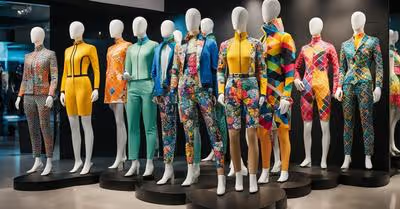










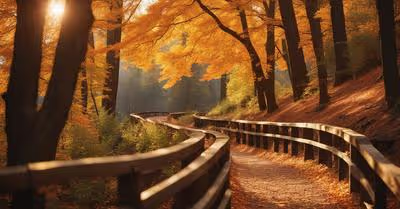




































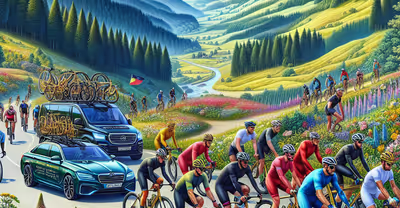









































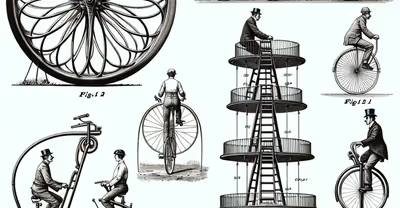




















































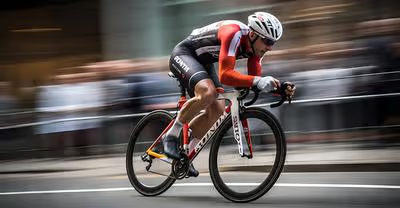












































































































































































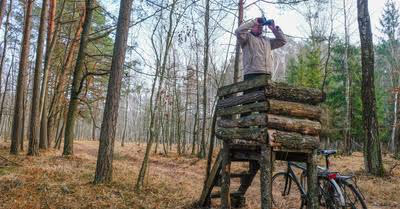

















































































































































































































































































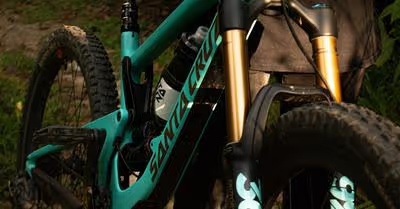





















































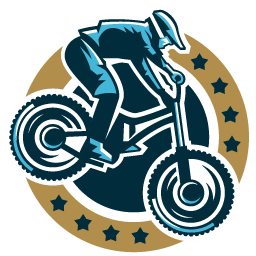
.avif)
